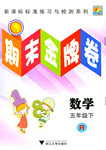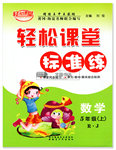题目内容
__________ by the teacher, he couldn't laugh when seeing my funny acts.
- A.Criticize
- B.Criticized
- C.Being criticized
- D.Having criticized

 期末金牌卷系列答案
期末金牌卷系列答案 轻松课堂标准练系列答案
轻松课堂标准练系列答案A young British woman had shortly arrived in Hong Kong and had not yet 36 anything about the Chinese 37 . One day she went to the home of a Chinese friend and was 38 given a cup of Chinese tea. She was not 39 and she also found this type of tea rather 40 . However, since she had been given the tea , she felt she should drink it. Hoping to finish it 41 so that she would not feel about having to drink this tea which she did not 42 , she started to drink as much of it as she could. But as soon as her cup became half - full, the host 43 giving her more. Several times she told the host that she had had 44 , but it seemed to have no 45 . Her cup kept being 46 , and she kept on drinking. During the time of her 47 , she drank about twelve cups of tea. Later she found out that she should have just 48 the tea, and that this would have meant that she had had enough. Influenced by her 49 culture, she felt it too 50 to leave the tea and could not understand why the host took no notice of her protests(抗议) that she had had enough!
| A. got | B. learned | C. taught | D. remembered |
| A. culture | B. language | C. food | D. habit |
| A. hardly | B. certainly | C. carefully | D. immediately |
| A. tired | B. happy | C. thirsty | D. interested |
| A. bitter | B. sweet | C. nice | D. cold |
| A. in time | B. slowly | C. gradually | D. quickly |
| A. take | B. have | C. like | D. buy |
| A. practised | B. insisted on | C. stopped | D. tried |
| A. some | B. enough | C. all | D. a little |
| A. value | B. end | C. effect | D. importance |
| A. filled | B. moved | C. changed | D. emptied |
| A. talk | B. visit | C. party | D. investigation |
| A. left | B. drunk | C. absorbed | D. filled |
| A. modern | B. ancient | C. Western | D. Eastern |
| A. impolite | B. polite | C. easy | D. uneasy |
A long time ago, before there was any money (coins or paper money), people got the things that they needed by trading or exchanging. Salt was one of the first items used to exchange for other items. Later, some of the common things that were used for exchanging were tea leaves, shells, feathers, animal teeth, tobacco, and blankets. Around 3000 BC, barley, a type of grain, was used for exchanging.
The world’s first metal money was developed by the Sumerians who melted silver into small bars all weighing the same. This was around 1000 BC. About three hundred years later, people started using coins as official money.
Around 640 BC, people in the ancient kingdom of Lydia ( which was in Turkey) created special coins of exact with and purity (纯度). They were made of gold and silver and were stamped with a lion’s head.
Later, other empires such as Greece, Persia, and Rome adopted the concept of coins and started developing their own in many different shapes and different metals.
Around the year 1000, the Chinese started using paper money. The Chinese were the first to use paper money. The Europeans discovered this thanks to Marco Polo who went to China in 1295. the Chinese had different values for the paper notes which were made by the Chinese government.
Around 1661, Sweden became the first European country to make paper money. Until 1850, the Spanish dollar was the coin most widely used throughout the world.
【小题1】What is the best title for this passage?
| A. The history of money |
| B. How people traded in the past |
| C. The invention of paper money |
| D. The use of coins around the world |
| A. barley had always been used for exchanging |
| B. only a few people knew how to trade with others |
| C. salt was the most widely used item for exchanging |
| D. many kinds of things were used for exchanging |
A. Around 1300 BC. B. Around 1000 BC.
C. Around 700 BC. D. Around 640 BC.
【小题4】The underlined word “adopted” in Paragraph 4 probably means “____”.
| A. replaced | B. changed |
| C. accepted | D. invented |
| A.Spain | B.China | C.Sweden | D.Lydia |

